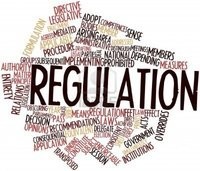The patent expirations of many blockbuster biologicals have paved the way for development of biosimilars and this has the potential to enhance access to otherwise high-cost biological therapies. Given the complexity of biologicals, the regulatory guidelines for biosimilar approval are meticulous and different from generics. Hence biosimilar developers often face issues during the application evaluation by regulatory authorities. With large number of biosimilars in development stage, it is pertinent for a manufacturer to have a deep understanding of the regulatory approval process. Rathore and colleagues from the Indian Institute of Technology offer insights into the objections raised by the regulatory authorities during evaluation of biosimilar applications for marketing authorization with special emphasis on applications reviewed by the US Food and Drug Administration (FDA) and the European Medicines Agency (EMA).
Why biosimilar applications fail during regulatory evaluation?
Biosimilars/Research
|
Posted 02/10/2020
 0
Post your comment
0
Post your comment

As expected, one of the major deficiencies identified was comparability between the proposed biosimilar and its originator biological. Most major regulatory guidelines recommend a three-tier comparability approach to gain regulatory approval for biosimilars. The three-tier approach includes analytical characterization, preclinical, and clinical studies. Many applications, including those for pegfilgrastim biosimilars Efgratin and Zioxtenzo were stalled due to a failed pharmacokinetic (PK) comparability exercise. PK studies are known to be more sensitive for detection of product-related differences.
Surprisingly, process validation was another major issue raised by regulatory bodies. Common deficiencies observed under this theme related to process controls, validation of equipment sterilization, filling strategy for vials, profiling of impurities and stability of drug substance and drug product. It is important for biosimilar manufacturers to understand the reference molecule via in-depth analysis and identify any critical quality attributes (CQAs) that may have an impact on the safety and efficacy of the molecule. Furthermore, the manufacturer needs to design a process and establish appropriate process controls to ensure manufacture of the desired product at a consistent quality. Stability studies are also important to demonstrate shelf life and quality of the product in biosimilar applications. For biosimilar development, the manufacturer must follow good manufacturing practice (GMP) and good clinical practice (GCP) as many applications were stalled by regulators due to inadequate GMP and GCP compliance.
This study into the regulatory experience of biosimilar manufacturers found that most rejections were due to gaps in the manufacturer’s understanding of regulatory expectations from a comparability exercise and also GMP and GCP compliance. It is expected that with time manufacturers will learn from prior regulatory experience and that this will result in fewer rejections of biosimilars.
Conflict of interest
The authors of the research paper declared that there was no conflict of interest.
Abstracted by Professor Anurag S Rathore, Department of Chemical Engineering, Indian Institute of Technology, Delhi, India.
Editor’s comment
The two pegfilgrastim biosimilars discussed in this article are not the only ones to be withdrawn recently by EMA. Pegfilgrastim biosimilar Cavoley from Stada Arzneimittel was withdrawn at the same time as Gedeon Richter’s Efgratin [2]. While Polish biologicals company Mabion Spolka Akcyjna (Mabion) withdrew the duplicate applications for its rituximab biosimilar, Mabion CD20, in April 2020 [4].
Readers interested to learn more about GMP and quality for biosimilars are invited to visit www.gabi-journal.net to view the following manuscript published in GaBI Journal:
GaBI Journal is indexed in Embase, Scopus, Emerging Sources Citation Index and more.
Readers interested in contributing a research or perspective paper to GaBI Journal – an independent, peer reviewed academic journal – please send us your submission here.
Related articles
Biosimilars applications reviewed in the EU
Biosimilars approved in Europe
References
1. Rathore AS, Chhabra H, Bhargava A. Approval of biosimilars: a review of unsuccessful regulatory filings. Expert Opin Biol Ther. 2020;1-9. doi:10.1080/14712598.2020.1793954
2. GaBI Online - Generics and Biosimilars Initiative. EC approval for pegfilgrastim biosimilar Fulphila [www.gabionline.net]. Mol, Belgium: Pro Pharma Communications International; [cited 2020 Oct 2]. Available from: www.gabionline.net/Biosimilars/News/EC-approval-for-pegfilgrastim-biosimilar-Fulphila
3. GaBI Online - Generics and Biosimilars Initiative. Sandoz withdraws biosimilar pegfilgrastim application [www.gabionline.net]. Mol, Belgium: Pro Pharma Communications International; [cited 2020 Oct 2]. Available from: www.gabionline.net/Biosimilars/News/Sandoz-withdraws-biosimilar-pegfilgrastim-application
4. GaBI Online - Generics and Biosimilars Initiative. Mabion withdraws application for rituximab biosimilar in EU [www.gabionline.net]. Mol, Belgium: Pro Pharma Communications International; [cited 2020 Oct 2]. Available from: www.gabionline.net/Biosimilars/News/Mabion-withdraws-application-for-rituximab-biosimilar-in-EU
Permission granted to reproduce for personal and non-commercial use only. All other reproduction, copy or reprinting of all or part of any ‘Content’ found on this website is strictly prohibited without the prior consent of the publisher. Contact the publisher to obtain permission before redistributing.
Copyright – Unless otherwise stated all contents of this website are © 2020 Pro Pharma Communications International. All Rights Reserved.
News
FDA approves Poherdy (first interchangeable pertuzumab) and Armlupeg (pegfilgrastim) biosimilars
EMA recommends approval for insulin glargine biosimilar Ondibta and denosumab biosimilar Osqay
General
Samsung Bioepis wins Pyzchiva case; Regeneron patent rulings threaten foreign biosimilars
Chinese biosimilars go global: growth, partnerships, and challenges
What is the future for the US biosimilar interchangeability designation

Biosimilars/Research Posted 05/06/2025
Biosimilar clinical efficacy studies: are they still necessary?

Biosimilars/Research Posted 27/05/2025
The best selling biotechnology drugs of 2008: the next biosimilars targets








Post your comment